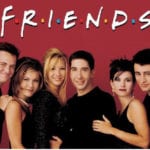 Movies and TV
Movies and TV  Movies and TV
Movies and TV  History
History 10 Wars That Sound Made Up (but Absolutely Happened)
 Movies and TV
Movies and TV 10 Movie Adaptations That Ruined Everything for Some Fans
 History
History 10 Dirty Government Secrets Revealed by Declassified Files
 Weird Stuff
Weird Stuff 10 Wacky Conspiracy Theories You Will Need to Sit Down For
 Movies and TV
Movies and TV 10 Weird Ways That TV Shows Were Censored
 Our World
Our World 10 Places with Geological Features That Shouldn’t Exist
 Crime
Crime 10 Dark Details of the “Bodies in the Barrels” Murders
 Animals
Animals The Animal Kingdom’s 10 Greatest Dance Moves
 Movies and TV
Movies and TV 10 Box Office Bombs That We Should Have Predicted in 2025
 Movies and TV
Movies and TV 10 Movie Franchises That Started Dark but Turned Surprisingly Soft
 History
History 10 Wars That Sound Made Up (but Absolutely Happened)
 Movies and TV
Movies and TV 10 Movie Adaptations That Ruined Everything for Some Fans
Who's Behind Listverse?

Jamie Frater
Head Editor
Jamie founded Listverse due to an insatiable desire to share fascinating, obscure, and bizarre facts. He has been a guest speaker on numerous national radio and television stations and is a five time published author.
More About Us History
History 10 Dirty Government Secrets Revealed by Declassified Files
 Weird Stuff
Weird Stuff 10 Wacky Conspiracy Theories You Will Need to Sit Down For
 Movies and TV
Movies and TV 10 Weird Ways That TV Shows Were Censored
 Our World
Our World 10 Places with Geological Features That Shouldn’t Exist
 Crime
Crime 10 Dark Details of the “Bodies in the Barrels” Murders
 Animals
Animals The Animal Kingdom’s 10 Greatest Dance Moves
 Movies and TV
Movies and TV 10 Box Office Bombs That We Should Have Predicted in 2025
10 Terrifying Adaptions of Adored Children’s Characters
In the U.S. and elsewhere, there is a limit to how long copyright can last. When it expires, the public is free to use intellectual property like names, stories, and characters as they wish. This applies to beloved children’s characters, too, which some people wish to use in ways the original creators probably never imagined, let alone intended. This led to a trend that has surfaced a few times in recent cinematic history: re-imagining classic children’s characters as violent killers. What follows are ten morbid examples of childhood favorites and fairy tales turned into psychopathic, sadistic, and revenge-seeking murderers.
Related: Top 10 Children’s Books With Profoundly Grown-Up Lessons
10 Winnie the Pooh
Mere months after the copyright expired for A.A. Milne’s lovable, honey-hungry bear, Winnie the Pooh: Blood and Honey was in production. As the name suggests, the 2023 movie is a slasher. It sees the formerly sweet yellow bear transformed into a snarling, axe-wielding beast. It was the brainchild of British filmmaker Rhys Frake-Waterfield, who noticed the copyright for the character was expiring and spotted a gap in the market for a fun, old-fashioned horror flick amid today’s more serious offerings.
He wrote a script in which an adult Christopher Robin returns to 100 Acre Wood and finds a feral Pooh and friends angry at having been abandoned. The film’s trailer quickly went viral, and some fans were so enraged they petitioned to stop its release. This backfired as the unexpected publicity led to the movie being screened in cinemas worldwide.[1]
9 Bambi
The production team behind Winnie the Pooh: Blood and Honey was quick to pounce on another beloved character’s copyright which expired in 2023. Bambi: The Reckoning breaks sharply with the famous 1942 Disney film. Instead of representing beauty, innocence, and nature, the adorable deer is transformed into a “vicious killing machine,” according to producer Scott Jeffrey.
Still in production at the time of writing, the plot is yet to be known, but Jeffrey did say that Netflix’s The Ritual is a major inspiration for the film. The Ritual follows a group of friends stalked by ancient evil while hiking in the vast Scandinavian wilderness. It is difficult to imagine that Disney or Felix Salten, the Austrian author who created the character in his 1923 book Bambi, a Life in the Woods, would approve of the dark, deranged adaptation.[2]
8 Pinocchio
The recent wave of horror adaptations of children’s characters was preceded in the 1990s by movies like Pinocchio’s Revenge. The 1996 movie’s plot is similar to the horror classic Child’s Play, in which a serial killer’s soul inhabits a child’s toy to continue his murder spree. Pinocchio’s Revenge lets viewers decide whether the doll truly came alive or whether it was all a figment of a disturbed child’s imagination.
The child, Zoe, is the daughter of an attorney defending a serial killer from the death penalty. Pinocchio starts out as a key piece of evidence—the favorite toy of the accused serial killer’s murdered son—and gradually becomes animated throughout the movie as Zoe becomes attached to him. The pair are present at every terrible crime that befalls the people in Zoe’s life until people begin to suspect her of murder.[3]
7 Jack Frost
1997 saw the release of this ridiculous holiday horror where a convicted serial killer is turned into a genetically modified snowman, animated with splendidly bad special effects and spitting silly one-liners. The vengeful killer snowman spends the Christmas holidays hunting down his enemies in a variety of ways, like shooting icicles out of his hands. Despite overwhelmingly negative critical reviews upon its release, the movie attracted a cult following among those who considered it so bad it was good.
Some later reviewers attribute the film’s cult status to its self-awareness of how ludicrous a serial-killing snowman story is. It is a film that does not take itself too seriously, so it is enjoyed by audiences who do not take it too seriously either.[4]
6 The Gingerbread Man
In 2005, this fairy tale about runaway food inspired a nightmare known as The Gingerdead Man. Sticking with the horror trope of a serial killer’s soul becoming trapped inside a childish object, in this movie, magical gingerbread dough becomes animated as a sweary and sadistic killer played by Gary Busey.
The Gingerdead Man’s victims are bakery staff who are inexplicably unable to escape despite the glass windows and the fact they should have a key for the door. With a plot making that much sense and some seriously over-the-top acting, it is no surprise the movie was met with stern criticism. This did not stop it from spawning sequels, crossovers, and comic book series.[5]
5 Humpty Dumpty
It is unlikely all the king’s horses and all the king’s men could put together a sillier horror movie than Scott Jeffrey’s The Curse of Humpty Dumpty. Taking advantage of the fact that the classic nursery rhyme never states Humpty Dumpty is an egg, Jeffrey opts for a killer clown doll with a cracked skull. The doll is purchased at an antique shop by two sisters returning to their childhood home with their dementia-suffering mother.
Surprisingly, the movie gets deep into the family drama side of things, and the doll only kills four people, making it more of a psychological drama than the traditional slasher one might expect from the creepy promotional art.[6]
4 The Little Mermaid
Another classic Disney tale to have been twisted into something different and darker is The Little Mermaid. Hans Christian Andersen’s source material also inspired the 2015 Polish horror musical The Lure. The movie follows two vampiric mermaids who want to live in America but surface in Warsaw, working as backup singers and strippers at a nightclub.
One falls for the member of the nightclub band who lured them there, while the other struggles to keep her vampiric urges under control as a stream of easy victims arises in the form of admiring men attending the nightclub after hearing about the mermaids. Unlike other horror adaptations of fairy tales, which are rarely serious and often met with hostility from critics, The Lure had its international release at the Sundance Film Festival, where it won an award for “unique vision and design.”[7]
3 The Grinch
It is one thing to steal Christmas, but quite another to go on a Christmas-killing spree. Dr. Suess’s famous green fiend becomes a bloodthirsty beast angered by a father and daughter flouting a town’s ban on Christmas decorations in 2022’s The Mean One. It features established cult horror actor David Howard Thornton, known for playing the clown in the Terrifier movies, as the gruesome Green One in this twisted take on the Grinch.
The story follows Cindy, a traumatized adult returning to the childhood home where she saw her mother murdered by the furry green monster. With her is her father, and the two are seeking closure by selling the house. They discover the town banned Christmas after the murder, and everyone blames Cindy for killing Christmas with her silly story of a green monster. However, history begins to repeat itself when Cindy and her father decorate the house.[8]
2 Santa Claus
It seems no childhood figure is sacred to today’s studio executives. Even Santa got a murderous makeover in 2022, although he was not turned into a psychopathic slasher. He became a hard-drinking, hammer-wielding action hero saving a wealthy family from a gang of armed thugs led by Scrooge in Violent Night. The film re-imagines Father Christmas as a magical, centuries-old Scandinavian warrior who sees off the gang with a combination of blunt force trauma and booby traps set by the family’s seven-year-old daughter.
Her horrifying inventions are on an altogether different level than the relatively harmless traps in Home Alone. David Harbour of Stranger Things and Hellboy takes on the role of this ruthless bad Santa, whose usual Christmas bender and complaints about modern consumerist kids are interrupted when he discovers the home invasion in Greenwich, Connecticut.[9]
1 The Banana Splits
The beloved Hanna Barbera animal band begins to butcher their live studio audience when they learn their show has been canceled in this 2019 flick. The film follows a young boy and his mother, who had bought him tickets to the live taping for his birthday. That happened to be the unlucky day when Fleegle the beagle, Bingo the ape, Drooper the lion, and Snorky the elephant heard they were being cut.
The beloved ’60s Saturday morning show might seem an unusual choice for a horror adaptation, but the team behind it believed the band’s sunglasses and permanent expressions made them perfectly creepy. They were also inspired by the idea of children totally trusting anonymous adults in costumes. While amenable to a gory adaptation, experts have said that Hanna and Barbera would have hated it as they preferred to produce feel-good content for kids.[10]








